Biomarker’s validation (PET imaging)
The service provides the validation of clinical imaging biomarkers, especially assessing variability related with Physics and scanner-related effects. In particular, Monte Carlo simulation for producing realistic simulations of clinical images on different conditions (i.e. different scanners, reconstruction methods, noise conditions, etc…), is used to evaluate the estability of biomarkers over different conditions. The service provider developed the platform SimSET and has access to the CESGA supercomputing capabilities for the needed computational resources (https://www.cesga.es/en/home-2/)
Service provider: Health Research Institute of Santiago de Compostela (IDIS)
Targeted phospho-proteomics for studying the most relevant pathways in cancer
Targeted phospho-proteomics using 60 antibodies selectable among >400 covering the most relevant pathways in cancer, i.e. RTKs, PI3K/mTOR, MAPKs, autophagy, apoptosis, metabolism, cell adhesion and migration, cell cycle regulation and checkpoints, DNA damage, hypoxia as well as inflammation and immunity
Service provider: Istituto Superiore di Sanità (ISS)
Immuno proteomic profiling
Analysis of cytokine, chemokine and immune factors in human biological samples (serum, plasma, CSF, vitreous, saliva, tears, tumors samples) using Bio-Plex Assays -(Luminex thechnologies)
Service provider: Istituto Superiore di Sanità (ISS)
Sorting for Extracellular vescicles (Evs)
Analysis of fluorescent labelled EVs (cytoflex) – Sorting of fluorescent labelled EVs (MoFlow Astrios)
Service provider: Istituto Superiore di Sanità (ISS)
Mass Cytometry (Helios/Cytof XT)
Immune profiling with a fixed 30 antibody panel including barcoding (20-plex)
Service provider: University of Bergen
End-to-end analysis pipelines for radiogenomics studies (integration of biological and imaging biomarkers)
Radiogenomics is a discipline that identifies correlations between radiomic and dynamic parameters, as phenotypic data obtained from images can be correlated with tissue genome profiles and related molecular transcriptional activities. This service provides an end-to-end pipeline to perform such correlations by using statistical approaches and visual analysis of clusters (e.g., heat maps and dendrograms) with the objective to help the treatment selection by providing individual-level rather than population-level information.
Service provider: IIS La Fe
Multiparametric immunophenotype of blood/immune cells as well as solid tumour cells by flow cytometry
The service is intended for defining bone marrow and peripheral blood immune cells as well as solid tumor-infiltrating immune cells using state-of-the-art FCM protocols
Service provider: IRCCS SYNLAB SDN
Ultrasensite determination of biomarkers (i.e. circulating cytokines, Neurofilaments light chains, etc.) using the SIMOA technology for biomarker discovery and validation
The service is based on the SIMOA technology, a cutting-edge method for detecting circulating biomarkers. This technology also allows a fine detection of inflammatory cytokines in serum or plasma samples.
Service provider: IRCCS SYNLAB SDN
Isolation and characterisation of Circulating tumour cells (CTCs)
CellSearch system and DEPArray Nxt platform
Service provider: Istituto Nazionale Tumori IRCCS “Fondazione G. Pascale” (INT – Pascale)
cfDNA testing to evaluate the molecular profile and to monitor the response to therapy and the molecular evolution of the disease in cancer patients
Circulating free DNA testing using Next-Generation Sequencing platforms and Droplet Digital PCR technology for molecular profile assessment, disease monitoring and treatment response
Service provider: Istituto Nazionale Tumori IRCCS “Fondazione G. Pascale” (INT – Pascale)
Characterisation of immunophenotypes and immune-monitoring
Identification and quatification of the tumour immune infiltrate by flow cytometry, including Th1, Th2, Th17 and Treg cells, and their plasticity, cytotoxic T cells, γδ T cells, and double negative αβ T cells, M1 and M2 macrophages. Study of the expression of immunosuppressive molecules and/or their receptors by tumour cells, immune cells infiltrating the tumour, and their peripheral blood counterparts, including PD-1/PD-L1, IDO, CD39/CD73/A2A adenosine receptor (ADORA2A), CD200/CD200R, and TIM-3.
Service provider: Coimbra Hospital and University Centre (CHUC)
Immune monitoring-Immune-checkpoints panel: LAG3/ICOSL/CTLA-4/BTLA4/CD3/-/PD-1/CD4/PD-L1/
Service provider: Instituto de Investigación Sanitaria Valdecilla (IDIVAL)
Biomarkers discovery from liquid biopsies: exosomal microRNA (miRNA), ctDNA, and validation of miRNAs profiles
Analysis of miRNA, ctDNA and validation or miRNA profiles by RTqPCR
Service provider: IRCCS Istituto Giannina Gaslini (IGG)
Circulating Tuomor Cells Characterisation
Detection and characterisation of circulating tumor cells (phenotypic and copy number alteration and single nucleotide variations) , extracellular vesiscles (phenotypic and cargo), free circulating nucleic acids (gene mutation panel assay, shallow WGS, RNASeq, miRNASeq).
Service provider: IRCCS Istituto Romagnolo per lo Studio dei Tumori “Dino Amadori” – IRST Srl (IRST-IRCCS)
Development and analytical validation of multiplexed immunoassays for verification and validation of protein biomarkers in body fluids
The technologies implemented for de novo assay development are Luminex and Simoa (Quanterix). The affinity reagents used for assay development are tested for specificity. Further screening of antibodies to identify working antibody pairs for the biomarker of interest is part of the assay development. The cost includes analytical development and verification on ~400 samples. Cost however will depend on the number of biomarkers and assay type.
Service provider: KTH Royal Institute of Technology
Biomarkers Pre-analytical validation
Assessment and reporting of the robustness of your biomarker to common pre-analytical variables such as sample processing delays, storage and processing temperatures and freeze-thaw cycles
Service provider: The Integrated BioBank of Luxembourg (IBBL)
Biomarkers Analytical validation
Assessment and reporting of the analytical characteristics of your biomarker assay including, amongst others, precision, matrix effect, analytical range, specificity, sensitivity and stability.
Service provider: The Integrated BioBank of Luxembourg (IBBL)
Biomarkers clinical verification
Study on a limited sample size to verify the performance of your biomarker in clinical sample sets presenting the same clinical characteristics of the initial POC population.
Service provider: The Integrated BioBank of Luxembourg (IBBL)
Liver cancer platform for biomarker validation
Assessment and reporting of a specific biomarker in clinical samples of liver cancer. The technique used will depend on the nature of the biomarker (eg, in case of secreted proteins we will prioritize ELISA in plasma; in the case of gene expression biomarkers, we will study RNAseq data or qPCR data). The study includes a statistical analysis with clinical and pathological features to determine the diagnostic and prognostic potential of the selected biomarker.
Service provider: Germans Trias i Pujol Research Institute (IGTP)
Immunohistochemical validation of selected biomarkers
Automatised immunohistochemical staining for biomarkers assessment in human tissues. Samples usually correspond to paraffin blocks, including tissue microarrays, from formalin-fixed tissues. Immunohistochemistry on frozen tissue can be also considered upon agreement. This service does not include interpretation of the results.
Service provider: Germans Trias i Pujol Research Institute (IGTP)


















